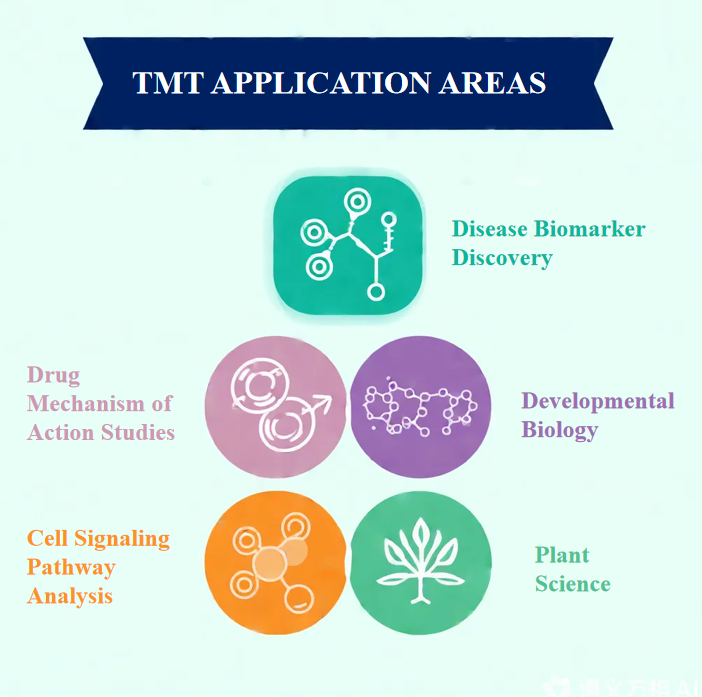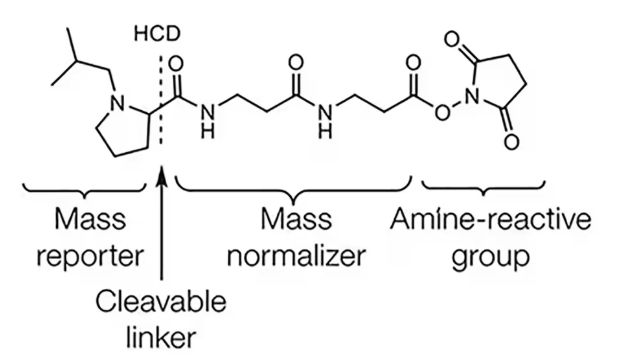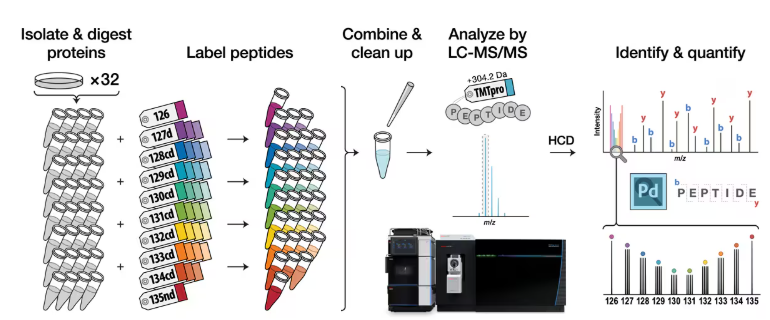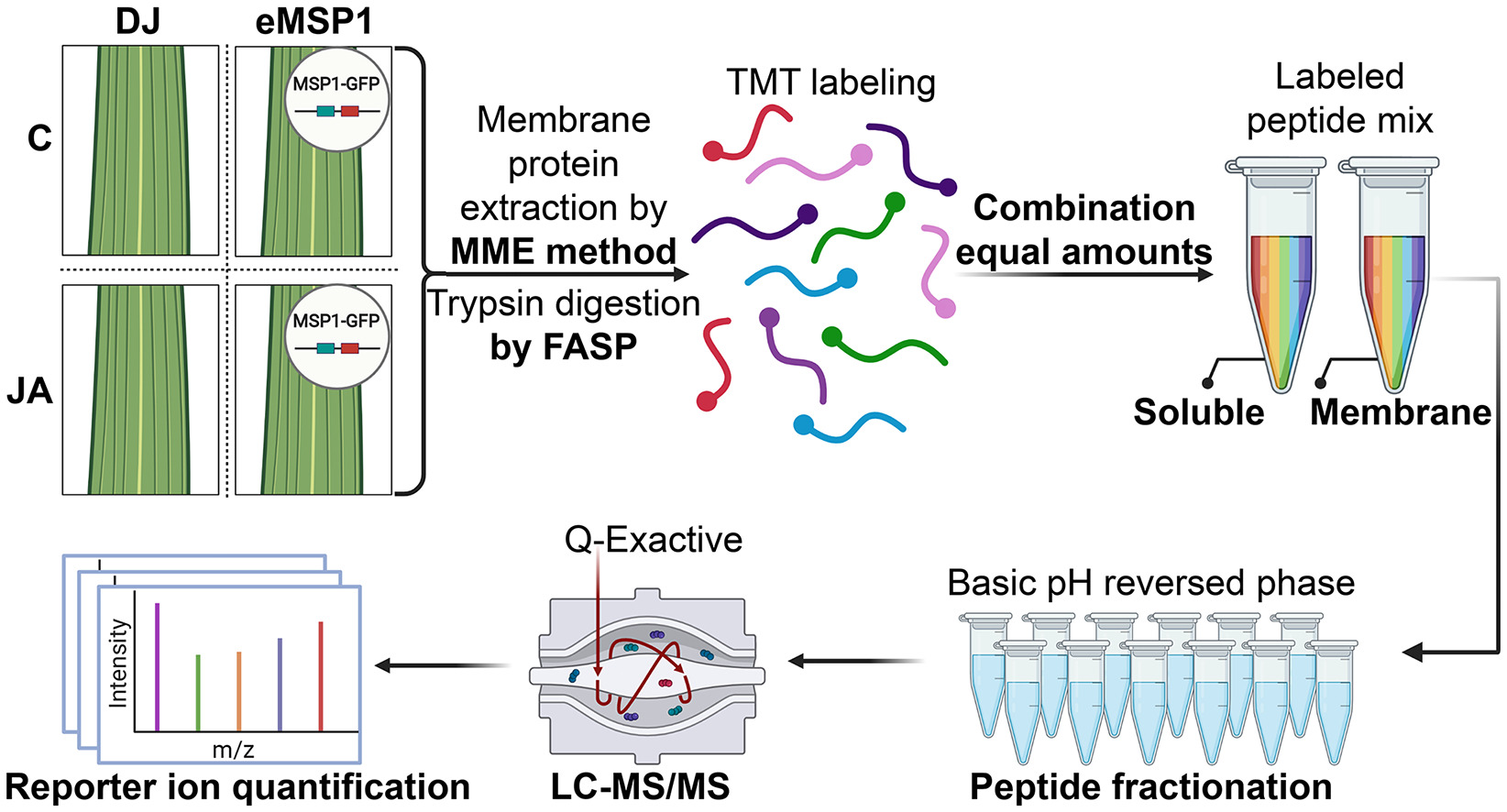TMT Proteomics Analysis Service
TMT (Tandem Mass Tag) proteomics, as a cutting-edge technology in the field of proteomics, focuses on leveraging advanced tandem mass tag (TMT) techniques for high-throughput, high-precision quantitative protein analysis. This technology not only deepens our understanding of protein expression levels but also significantly advances the exploration of protein functions, interaction networks, and disease molecular mechanisms.
Protein abundance changes, modification states, and subcellular localization are key indicators of their biological functions. TMT proteomics analysis service can enable simultaneous analysis of protein expression profiles across multiple samples, uncovering subtle differences and dynamic changes in protein expression under specific physiological or pathological conditions. This capability is critical for understanding how proteins participate in biological processes such as cell signaling, metabolic regulation, and cell cycle control. Furthermore, the high-throughput nature of TMT technology allows the simultaneous detection of thousands of proteins, offering invaluable insights into discovering new biomarkers, elucidating protein interaction networks, and unveiling molecular mechanisms underlying disease progression. Thus, TMT proteomics analysis service not only facilitates proteomic research but also drives the in-depth development of biomedical studies.

Figure 1. Application Fields of TMT Proteomics.
Technical Principles
The TMT technology utilizes multiple stable isotope tags to specifically label the amino groups of peptides, followed by tandem mass spectrometry analysis. TMT tags share the same chemical structure, consisting of a reporter group, a balance group, and a peptide-reactive group. However, isotopic substitutions at different positions within the tags result in varying molecular masses for the reporter and balance groups in each tag. When these tags are fragmented in the mass spectrometer, they release distinct reporter ions. By comparing the intensities of these reporter ions, the relative abundance of peptides across different samples can be determined.

Ege, N. et al. Cell Chemical Biology, 2021.
Figure 2. Chemical Structure Diagram of TMT Label.
Services at MtoZ Biolabs
Leveraging Thermo's TMT tags and Orbitrap series mass spectrometers, MtoZ Biolabs offers TMT proteomics analysis service with ensured labeling efficiency, high data acquisition efficiency, and exceptional sensitivity.
The general workflow for TMT proteomics sample preparation is outlined below. Protein samples from different sources are denatured, reduced, alkylated, and digested into peptides. These peptide samples are then labeled with TMT reagent kits and combined into a single sample. Fractionation techniques are applied to separate the combined sample, resulting in eight fractions. After purification, each fraction is analyzed using HPLC-MS. The resulting data are processed to obtain protein identification and relative quantification information.

www.thermofisher.cn
Figure 3. Detection Process of TMT Proteomics.
Service Advantages
1. High Sensitivity
MtoZ Biolabs has established a platform to remove high-abundance proteins, focusing on labeling only low-abundance proteins.
2. Applicable to Diverse Proteins
TMT proteomics analysis service can identify various types of proteins, including membrane proteins, nuclear proteins, and extracellular proteins.
3. High Throughput
TMT technology allows the simultaneous analysis of up to 10 samples, making it particularly suitable for studying differential protein expression in samples treated with various methods or over different time points.
4. Post-Translational Modifications Detection
MtoZ Biolabs offers multiple post-translational modification analyses, including phosphorylation, ubiquitination, and glycosylation. These can be combined with TMT proteomics to detect various modification proteomes.
5. High Data Quality
With deep data coverage and rigorous quality control, MtoZ Biolabs leverages an AI-driven bioinformatics platform to integrate all TMT proteomics data, delivering comprehensive data reports.
6. Customized Research Solutions
MtoZ Biolabs provides tailored services to address your unique research questions and experimental requirements.
Sample Submission Suggestions
1. Sample Types
We accept nearly all types of biological samples and ensure proper preservation to maintain protein integrity and spatial distribution.
2. Sample Amount
We recommend preparing at least three biological replicates.
Note: If you have specific requirements or need assistance with sample preparation, please contact us.
Applications
1. Disease Mechanism Exploration
By comparing protein expression differences between healthy and diseased tissues, our service aids in identifying disease-related protein biomarkers and understanding molecular mechanisms of diseases.
2. Drug Target Discovery
TMT proteomics analysis technology evaluates changes in protein expression before and after drug treatment, helping identify potential drug targets and biomarkers to support personalized medicine.
3. Biomarker Identification
TMT proteomics analysis service facilitates the discovery and validation of new biomarkers for early diagnosis, prognosis assessment, and treatment monitoring of diseases.
4. Signal Pathway Studies
TMT proteomics can depict the activation status of signaling pathways under specific stimuli or conditions and assess how these pathways influence cellular behaviors like proliferation, differentiation, and apoptosis.
5. Protein Interaction Networks
Combined with co-immunoprecipitation (CO-IP) or other affinity purification methods, TMT proteomics enables the construction of protein-protein interaction networks, enhancing the understanding of complex biological processes.
6. Environmental Stress Response
TMT proteomics helps study the protein-level response of organisms to environmental changes (e.g., temperature, pH, toxin exposure), providing insights into adaptive mechanisms.
7. Developmental Biology
TMT proteomics anslysis service tracks protein expression changes across developmental stages, aiding in unraveling the molecular basis of key developmental events.
8. Precision Agriculture
In plant science, TMT proteomics can study crop responses to stressors like pests and drought, facilitating the development of more resilient crop varieties.
Case Study
1. Identification of Potential Pattern Recognition Receptors (PRRs) in Rice Leaves Involved in MSP1 Perception Using TMT Quantitative Membrane Proteomics
This study used TMT quantitative membrane proteomics to systematically analyze pattern recognition receptors (PRRs) in rice leaves associated with MSP1 (Male Sterility Protein 1) perception. By comparing wild-type rice plants and those overexpressing MSP1, researchers identified several potential PRRs with significant expression changes in MSP1-overexpressing plants. The high throughput and precision quantification capabilities of TMT technology enabled a comprehensive analysis of membrane protein changes, uncovering MSP1's potential role in rice immune response and its association with specific PRRs. This finding not only deepens the understanding of MSP1's function but also provides new insights into plant immune signaling mechanisms.

Min, CW. et al. J Proteomics, 2022.
Figure 4. Understanding the Application of TMT Proteomics in Plants.
Deliverables
1. Comprehensive Experimental Details
2. Materials, Instruments, and Methods
3. Total Ion Chromatogram & Quality Control Assessment
4. Data Analysis, Preprocessing, and Estimation
5. Bioinformatics Analysis
6. Raw Data Files
MtoZ Biolabs, an integrated Chromatography and Mass Spectrometry (MS) Services Provider, provides advanced proteomics, metabolomics, and biopharmaceutical analysis services to researchers in biochemistry, biotechnology, and biopharmaceutical fields. Our ultimate aim is to provide more rapid, high-throughput, and cost-effective analysis, with exceptional data quality and minimal sample consumption. Free project evaluation, welcome to learn more details!
MtoZ Biolabs, an integrated chromatography and mass spectrometry (MS) services provider.
Related Services
Quantitative Proteomics Service
How to order?







